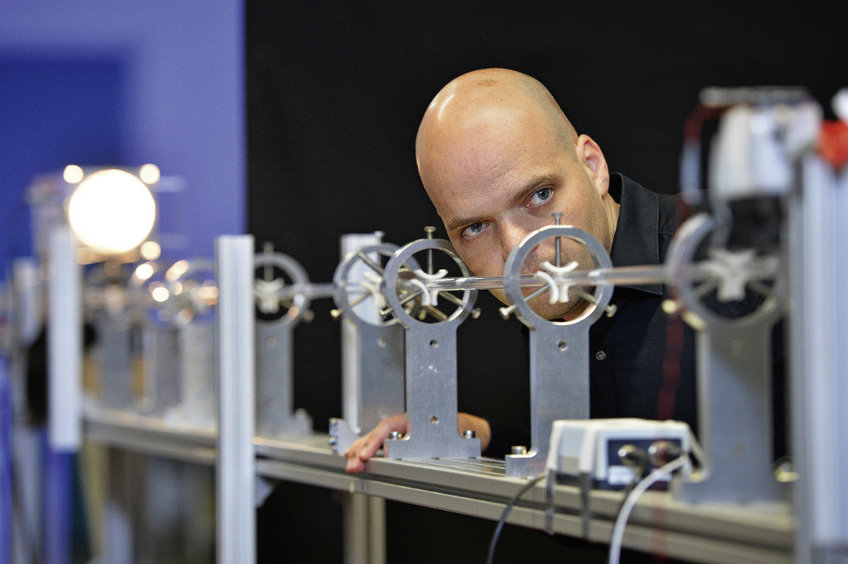
Technology Fields
New Materials
New materials are one of the essential foundations for innovation in the new century. They are the basis of modern products in all areas of life. More than half of all German research institutes perform work in this area, including many institutes of the Max Planck Society.
New materials are the focus of the MPI for Polymer Research, MPI for Colloids and Interfaces, MPI for Metals Research, MPI for Microstructural Physics, and the MPI for Iron Research. Other institutes are also closely linked to this field through individual projects. Polymers of all kinds, superconductors, new catalysts, solid electrolytes, ceramics, new alloys, and new coatings for surfaces are only some of the areas researched.
From Research Tool to Commercial Product
Progress in science is frequently dependent on the development of new equipment and methods. This is also a research focus at Max Planck Institutes. Supplying innovative researchers around the world with equipment and introducing new methods supports scientific progress and offers an interesting field to small and agile companies that can adapt to the fast-paced market. Everyone involved benefits, both from a scientific and a commercial point of view.
Innovative Technology for Health Care
Due to approval procedures and cost containment, it is difficult for new methods in medical technology to gain a foothold in the market. Companies need to persevere with important innovations, even if this requires a lot of time and energy. Ultimately, progress cannot be stopped.
Medications for People
Medical research is not only performed at “medical research” institutes. Although clinical research is only directly established at few institutes, research into underlying processes and the development of new therapeutic approaches for various sicknesses takes place at many institutes. The path from basic research to new medications is long and slow and can only be successfully undertaken together with experienced partner pharmaceutical companies.
From Genes to Proteins and Functions
Gene technology has been the basis of modern biological research for the last decades. Today, gene technology has shifted its focus and now essentially concentrates on examining proteins and their functions. Major publicly-sponsored research programs are devoted to researching the effect of genes on the control of biochemical processes in the cell. Modern biology is no longer imaginable without interdisciplinary collaboration of various fields. Bioinformatics and robotics have become an integral part of this discipline. Even patent law is searching for ways to meet the developments in modern biology.
In addition to the established pharmaceutical industry, young biotechnology companies and MPS spin-offs are playing an increasingly vital role in collaborations and licensing.
Plants for the Future
Applying gene technology to plants is an important field of research. For thousands of years, mankind has been endeavored to safeguard and improve crops by cultivating higher-yield and higher-quality plants for nourishment and other uses. Given the population explosion and the increasing burden on the environment, also due in part to intensive agriculture practices, new and increasing demands are constantly being placed on plant breeding. Science makes an effort to meet these demands by consistently optimizing plant-breeding methods.
Multipurpose Software
Software is an integral part of scientific work and is primarily used to control instruments and assess data. Image processing programs, graphic programs, and software for administrative tasks are also being developed at the institutes. The Max Planck Innovation sometimes licenses smaller program packages individually. Spin-offs or established companies also purchase software licenses and market them successfully.
Contact
Max-Planck-Innovation GmbH
Amalienstr. 33
80799 München
Telefon: +49 89 29 09 19-0